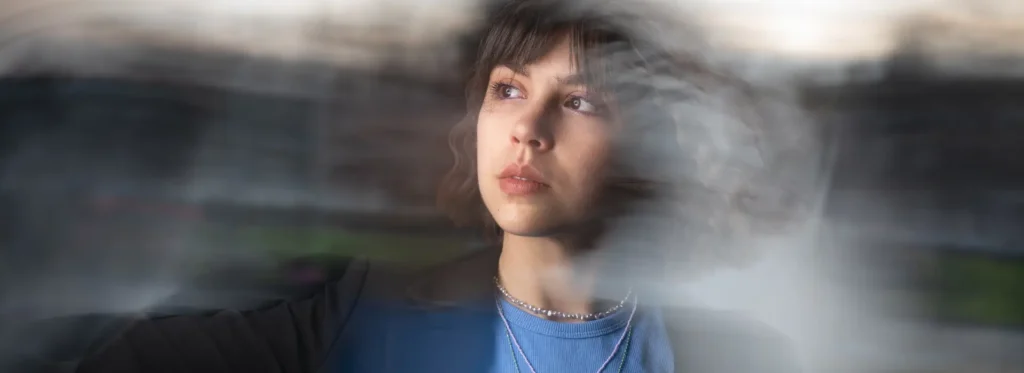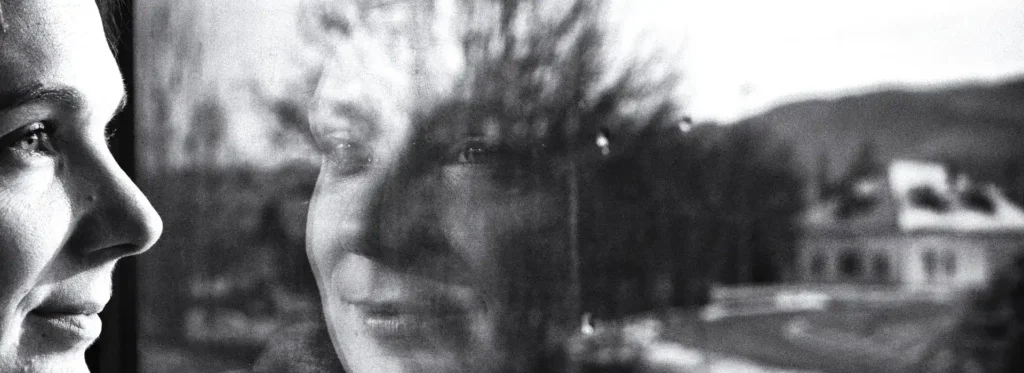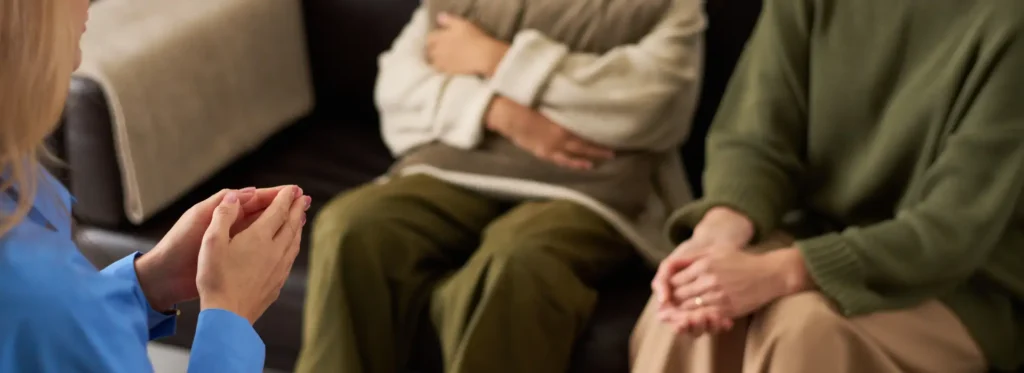Dialectical Behavior Therapy (DBT) Los Angeles
A Path Toward Healing With Dialectical Behavior Therapy
Dialectical Behavior Therapy (DBT) in Los Angeles offers hope for people dealing with intense emotions, personality disorders, and addiction. At Lost Angels, we understand how emotional suffering can feel like an endless cycle, but DBT was developed to treat exactly this kind of pain. Our DBT program creates a safe, nonjudgmental space where healing can begin.

Why DBT Programs Work for Mental Health and Addiction
Dialectical Behavior Therapy (DBT) was developed by Marsha Linehan as a form of psychotherapy designed to help people who feel emotionally overwhelmed by their experiences.
DBT focuses on building four key skill areas: mindfulness, emotion regulation, interpersonal effectiveness, and distress tolerance. These skills in DBT are essential for managing mental health disorders, as well as co-occurring substance use.
At Lost Angels, our DBT program is evidence-based and designed to treat various mental health conditions and addiction. It’s a helpful approach for those who haven’t found relief through traditional talk therapy or cognitive behavioral therapy.
With DBT, clients learn skills that help them feel more in control, confident, and connected.
How DBT at Lost Angels Can Support Long-Term Recovery
At Lost Angels, DBT offers a foundation for lasting change. This approach is ideal for people facing long-standing emotional and behavioral patterns.
Mindfulness is a core pillar of DBT. It helps clients develop awareness of their thoughts and feelings without judgment. Through DBT, clients can stay grounded in the present and learn how to manage emotions rather than be controlled by them. This process supports long-term recovery by building emotional resilience.
DBT focuses on reducing self-harming behaviors by teaching effective distress tolerance strategies. These skills are essential for those who previously turned to substances, self-injury, or emotional outbursts as a way to cope. Our DBT therapy offers a compassionate space to build safer, healthier responses to stress.
Interpersonal effectiveness is one of the four key DBT skill areas. Many individuals with borderline personality disorder or other mental health challenges struggle to express their needs or maintain boundaries. In our group therapy sessions, clients practice new communication strategies to improve relationships with others.
The foundation of DBT lies in balancing acceptance and change. Clients are taught to accept themselves as they are while also working toward growth and healing. This approach helps people feel validated and empowered. It also reduces feelings of shame, which can be a major barrier to recovery.
What Sets DBT Apart from Other Therapies?
While many therapies offer insight, DBT gives you a roadmap for action. Its unique combination of behavioral strategies sets it apart from other therapy programs.
Skill-Building Focus
Unlike traditional psychotherapy, DBT emphasizes learning and applying specific coping tools. Clients gain a solid foundation in emotion regulation and distress tolerance. Over time, they build emotional mastery and experience fewer crisis moments. This form of therapy is especially useful for teens and adults with severe mental health conditions.


Consistent Support Outside of Sessions
Our comprehensive DBT program includes between-session coaching, allowing clients to apply DBT skills in real-world situations. This consistent support helps people feel more confident in their progress. Many clients say this feature makes DBT feel more personal and effective than other therapy programs.
Structured, Goal-Oriented Approach
Each DBT treatment program at Lost Angels is tailored to the client’s needs but follows a structured format. Clients set goals, track their progress, and reflect weekly. This structure provides a clear path forward, which is crucial for those feeling overwhelmed by their emotions.


Effective for Dual Diagnosis
DBT is highly effective in treating co-occurring disorders. Whether you’re managing substance use and depression or PTSD and emotional instability, DBT integrates care for both. This dual-focus model helps clients heal on all levels: emotional, psychological, and behavioral.
DBT Therapy at Lost Angels: More Than Just Therapy
DBT at Lost Angels is part of a full spectrum of care for mental health treatment. Here, you receive a chance to reset, rebuild, and rediscover yourself.
We understand that trauma often underlies emotional dysregulation. Our team creates a safe space where clients can explore painful memories without fear of judgment. By integrating trauma-informed care, our DBT program offers a healing space for deep-rooted wounds.
Healing happens in community. Our group therapy model encourages connection, vulnerability, and shared learning. Whether in group skills training or individual sessions, our clients support one another through their journeys. This sense of belonging helps people learn how to cope and thrive.
Our DBT therapists are trained in the latest evidence-based therapy approaches, including cognitive behavioral therapy and dialectical behavioral therapy. Each therapist offers DBT with care and experience. You’ll be supported by a team that truly wants to see you succeed.
Healing doesn’t end when treatment does. That’s often when the real work begins. At Lost Angels, we stay by your side with aftercare plans. We’re here to help you step back into daily life with strength, stability, and the reassurance that you’re not doing it alone.
What to Expect in DBT Therapy in Los Angeles
Choosing to begin DBT treatment at Lost Angels is an act of courage. From the moment you arrive, you’re welcomed into an environment where support is steady and judgment has no place.
Our program blends individual therapy, group skills training, and real-time coaching to help you use what you learn in the moments that matter most. Every part of your experience is designed to support your emotional healing and set the foundation for lasting recovery.
In individual therapy, you’ll work closely with a compassionate therapist in Los Angeles to create goals that truly reflect your needs. Through group therapy, you’ll practice mindfulness and emotional regulation alongside others who understand what you’re going through.

Is DBT Right for You?
If you’re feeling overwhelmed by your emotions or stuck in harmful patterns, DBT might be the support you’ve been looking for. Our treatment in Los Angeles offers comprehensive DBT for people facing complex emotional and behavioral struggles.
Designed for Complex Conditions
DBT was originally developed to treat borderline personality disorder, but it’s now widely used for various mental health issues. It’s ideal for people dealing with intense emotions, trauma, or suicidal ideation.
Compassionate and Empowering
DBT isn’t about fixing you—it’s about helping you grow. Clients learn to accept themselves while also working toward a better future. This balance creates a compassionate space for real transformation.
Support That Fits Your Life
Lost Angels offers DBT in both residential and intensive outpatient program formats, allowing clients to choose what best fits their lives. Whether you need full-time care or flexible scheduling, we’re here for you.
Other Therapies at Lost Angels
DBT is just one part of the holistic support we offer. Healing looks different for everyone, so we provide a range of evidence-based therapies for each client.
CBT helps clients identify and reframe negative thought patterns that contribute to emotional pain and self-defeating behaviors. It’s especially effective in treating depression, anxiety, and substance use. Paired with DBT, CBT offers an additional layer of insight and skill-building to support long-term change.
EMDR is a trauma-focused therapy that helps people process distressing memories in a safe, structured way. Many clients who struggle with PTSD or emotional flashbacks find relief through EMDR. It’s a powerful complement to DBT, particularly for those whose intense emotions are rooted in past trauma.
Healing extends beyond the individual. Our family therapy sessions provide a safe space to rebuild trust, improve communication, and strengthen relationships. Families learn how to support recovery in healthy, sustainable ways. When one person heals, the whole system can begin to transform.
Motivational Interviewing is a client-centered approach that helps individuals explore and strengthen their motivation for change. It’s beneficial for those who feel ambivalent about recovery. Combined with DBT, MI helps clients clarify their values and take empowered steps toward healing.

Start Your Recovery With DBT at Lost Angels
Let today be the day you choose healing. Lost Angels offers comprehensive DBT in Los Angeles.
Our program blends mindfulness, emotional support, and practical tools to help you rebuild your life step by step. We create a space where healing is possible and where your story is met with care, not judgment.
If you’re searching for therapy Los Angeles residents can truly trust, our team is here to answer your questions. Reach out to us today and see how DBT can help you build a life that’s truly worth living.
Related Treatments
Frequently Asked Questions
What is Dialectical Behavior Therapy (DBT) used for?
DBT is used to treat borderline personality disorder, substance use, PTSD, and other mental health disorders. It helps people regulate their emotions and build new skills for everyday life.
Can DBT in Los Angeles help with addiction recovery?
Yes. DBT is effective in treating co-occurring addiction and mental health challenges. It teaches clients how to regulate emotions and tolerate distress to reduce relapse and support long-term recovery.
Is DBT in Los Angeles available in both inpatient and outpatient settings?
At Lost Angels, DBT is available through residential treatment and outpatient programs in the Los Angeles area. This flexibility allows individuals to receive the level of support they need.
How long does DBT treatment in Los Angeles usually last?
Standard DBT usually runs for six months to a year. The timeline depends on each person’s needs. At Lost Angels, we tailor treatment programs to your goals and emotional recovery.
What makes DBT different from other therapies?
DBT combines behavioral therapy, mindfulness, and real-world coaching. It’s structured, skill-based, and developed by Marsha Linehan to support people who feel traditional talk therapy hasn’t worked.
Can DBT be helpful for teens or adolescents?
Yes. We offer DBT programs for adults as well as therapy for teens. DBT has been effective in helping adolescents build emotion regulation skills and manage mental health conditions.
What’s the difference between DBT group therapy and individual therapy?
Individual DBT sessions focus on personalized goal setting and emotional insight, while group therapy teaches and practices core DBT skills like distress tolerance and interpersonal effectiveness.







